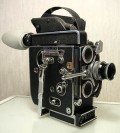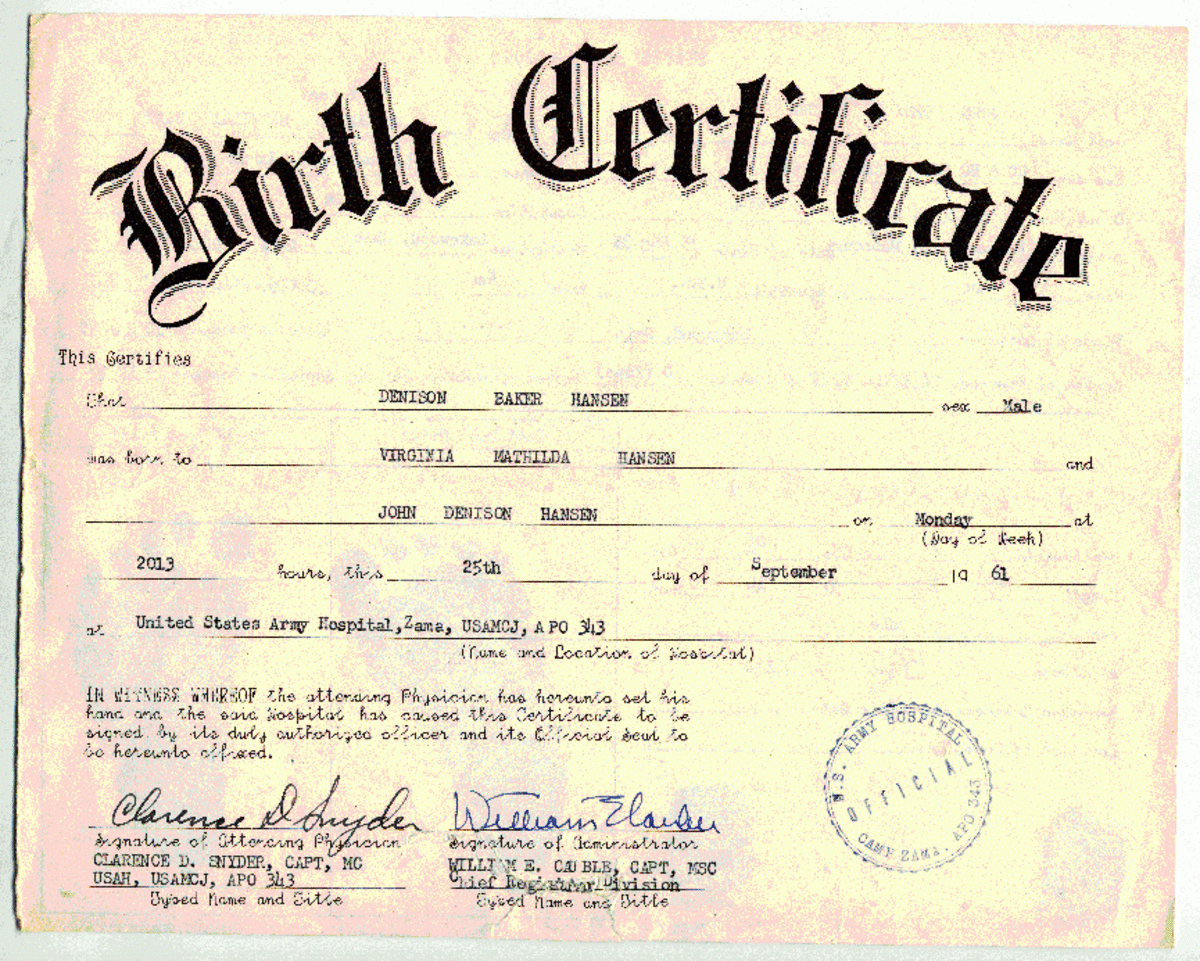Independent Film Making for Video Directors Who Can't Afford Film Schools
This is me, Wolf Nibori

Introduction - Who I Am & Why I've Created This Resource
Welcome to my hub, aspiring movie directors! If you've found me then I know you must have a burning desire to become a filmmaker. You've probably searched high and low for solid advice on how to become a director who succeeds in the film industry. It can get confusing out there, so what I intend to do here is show you what I've learned.
If you're just starting out you'll find this a gold mine and if you've been at filmmaking for a while you know you need all the tips and resources you can find so I'm making this as value rich as possible!
The first thing I want to tell you is that I understand your struggle - and it is most certainly a struggle! Having a dream is one thing. Making it come true? Quite another task altogether! I began my quest ten years ago when I graduated from high school. Since my family couldn't possibly afford a film school, I ended up attending a local community college. While there I studied writing, borrowed camcorders from friends, bought my first editing equipment, wrote several scripts and worked with a local university group of students interested in film. I read everything I could get my hands on that had anything to do with making movies.
Two years later I earned my degree and decided I'd move to Los Angeles to pursue film at small school there after months of research, phone calls, etc. After a 19 hour drive and face to face interview (I already had housing lined up as well as bus routes mapped, etc), I found out that my financial aid wouldn't cover the cost of schooling - a fact that they'd assured me would not be the case over the phone. This huge set back took a toll on my emotions, but I bought a camera any way - a digital camcorder - and shot my own small movies using local people and no real budget. Unfortunately after those shorts I went through a financial struggle that ended with me literally selling everything I owned other that some clothing, my dog and four keepsakes. If you guessed my camcorder, editing software and TV went with those things you guessed right. I lived in a car for a few months, but I kept taking notes the whole time!
In case you're wondering if I've given up my dream of becoming a filmmaker, the answer's no. Right now I'm doing freelance work too and every project I can to raise money for my future films while work on other areas of the artist path I'm on. Since those traumatic times I've been gradually re-building. Now I have a computer with a limited ability to edit digital video because it came with free video editing software! I'll explain that later in this article. I write fiction, entertainment reviews, sell my song lyrics & poetry, paint, run a few side businesses and study, study, study! You might not need to go through all the hell I endured (even though I don't regret the past because I learned), but you'll certainly encounter obstacles of your own as you continue towards your goal.
Due to my experience I've come to very strong conclusions on controversial subjects. I'm not going to sugar coat things for you guys - I'm going to give it to you straight and I'm not worried about people disagreeing. I don't claim to be the absolute expert on independent filmmaking, but I do have experience and ideas that I gained by research, personal interviews with professionals of various segments of the "film and video industry" and a many long hours of reading even the most tedious books and magazine articles I could get ahold of.
What I intend to do here is show you how to beat many as many obstacles as possible that will crop up during your adventure into independent film making!
Film Schools - Are They Right for You?
If you've got access to a whole lot of money ($50,000 or more) then you'll be eligible for one of the better known film schools such as UCLA or USC or NYU or Columbia. These places cost an arm and a leg, but they're well respected in the academic world. Are they respected in the actual film industry? That depends on who you ask, but the majority of working film professionals I've asked laugh as they explain that a degree only means you spent 4 years of your life and tons of cash but got very little real world experience. I'll be providing a website called LOAVES (Library of Annotated Film Schools) at the end of this article which you can read for yourself about every film school in the world from students who went there. Keep in mind that there are people who sign up there just to bad mouth different schools and I'd imagine there are those who also create multiple identities to promote different film schools.
For those with the money, the big film schools can teach you much about history and film theory and probably get you some useful connections but don't think that your degree means you'll be directing even small budget films right after you graduate. In the film industry having a degree means far less than having actual work (a reel, in most cases a DVD of your film or video portfolio) which you can show to prove you know filmmaking. Also, if you've got that kind of money and you like independent films why not simply spend it (carefully!) to finance your own projects?
There are industry specialty schools, as well; the various art institutes, Full Sail and all sorts of film bootcamps or online courses. I've talked with these people extensively and they sound like they offer great programs. Then I talked to people who actually graduated from those film schools and guess what each and every one that I personally spoke to told me? They're still not working in the film industry and now they have a huge debt to pay off. Perhaps I only accidentally stumbled upon the rare negative students - it's possible, but I doubt it. As dazzling as those programs appear I'd not be willing to spend that much cash to play with their 'state of the art' equipment.
In any school setting you are working in groups. That's an important part of film work because throughout the video and film industries you rarely work solo. However if your aim is to be a movie director and you go to a school that claims it will teach you how to become a movie director then guess who your fellow students are going to be? Other people who want to become directors! I'm sure you can see how that might lead to a bit of struggle over which one of you gets to actually direct the short projects you do in film school.
No school that I've come across lets you do multiple full length feature films, yet each of them charges so much that a clever independent filmmaker could certainly produce a couple low-budget pictures using the cost of their tuition (not to even mention housing, books, food costs, etc).
My conclusion? The same as many guerrilla filmmakers will tell you: forget film school it's not worth it!
Independent Filmmaking Books
Without Film School How Do You Learn to Make Movies?
Most jerks out there will say, "Simple - you just start doing it!" Yeah, ok, that's great if your aim's to make YouTube quality shorts simply for the sake of doing them, but if you're passionate and serious that's not going to cut it. You're hoping to learn the craft of filmmaking and one day be recognized as a serious director in you chosen genres. This takes work and an investment of at least time and effort, if not money. To start with, let's get down to the gritty: either open a notepad on your computer where you can type some notes or do it the old fashioned way with a pen and paper. Let's cover what you've got available to you that's going to help you go from wherever you are in life now to a person who can say "I've directed a film." Take your notes in whatever style you prefer and if you've got an idea while you're reading this - write it down! As a filmmaker you're going to need ideas, your profession is based on ideas. Don't wait to get started taking notes. You're not going to do it later if you don't start right now and then stick with it.
#1 - READ! I cannot emphasize this enough: read, read, read and when you finish that do more reading! If you work full time, print things out and take them for breaks or bring a book with you. The more you read the more you will understand. I've bought any book I couldn't find at my local library and even the worst book's bound to give you a few extra tips. It's worth investing in them and taking notes, too. Get books not just on directing (like Robert Rodriguez's 'Rebel Without a Crew') but books on acting, how to write scripts (which I'll cover in another hub here soon!), books on budgeting/financing, great filmmakers of the past, guides to cameras and video techniques, how to write stories that sell - any and every subject that's even remotely related to film making. Don't be lazy and say, "Well, it's about doing - not reading." That's true but it's only partially right because if you don't do solid research you're going to miss many, many ideas and tips that'd save you time and heartache. Pay attention to dates the books were published, as well, because film involves technology and regulations - two areas where change can occur rapidly.
#2 - Get a digital camcorder. Don't spend forever researching the best brands. At this point you don't need top of the line, you need functional. Amazon provides reviews for every camcorder under the sun and you can trust them to deliver the product you ordered so I advise them as your safest bet. Next comes E-bay. You can save money buying a second hand camcorder, but remember that you're taking a little risk because we've all heard the horror stories about fraud and scams on E-bay. It's getting better these days, but be careful just the same. There's also craigslist where you can find someone local to buy from. As long as you can fully test the camcorder before you buy it, this should be a good deal and save you some cash, too, but do not for ANY reason pay before you have tested the camcorder and have it in your hands. Don't fall for the idea that you need the best camcorder ever. Chances are your first few movies will be stinkers and that's normal. I don't mean to offend you, but that's a reality for beginning filmmakers. It's not an easy road and as a driven person I'm sure you realize that but all the same, keep in mind that if you don't produce (censored) and get it out of your system then it's going to come out one way or the other eventually!
#3 - Get video editing software. Since you'll be shooting in digital video (it's the highest quality and the cheapest, there's no reason to shoot in any other format right now), you're going to need software to edit that footage together. Here's a tip: if you run Windows XP, go to your Start Menu. See that "Windows Media Player"? Well, right around there you should also see "Windows Movie Maker", too. You can use that edit your movies and it costs you NOTHING! Before you go spending big bucks on the best video editing software, be aware that you may have this at your fingertips to experiment with. You'll be able to put together small short films and that's a start to your portfolio right away. You can narrate the videos or add music, also. If you master that program first then you'll have experience and understanding that'll help picking a better video editing software package a whole lot easier. Always use your free resources FIRST, then look to upgrade once you've mastered those.
#4 - Make friends! As an independent filmmaker you're going to need all the moral support you can find. On the internet you can do quick and efficient networking which can bring you supporters, fans and even financing if you keep at it. Don't hide in the dark, get out there and build yourself a profile on MySpace, Facebook and every other social network you can click your way towards! Befriend other filmmakers and independent movie fans. Build a blog on a free source like blogger.com and share what you're working on and what all you're learning. Keeping yourself in the public spotlight like this will get you used to public attention and that's very important for movie directors since they all aspire to be in the public eye. If you help other people and reach out to them you'll be surprised at how helpful they can be.
#5 - Show the world your work. Once you've got your first short shot and edited, upload it to YouTube. You can embed the video in your blogs, on MySpace, Facebook and put it everywhere you possibly can! You want people to see what you're capable of. You want them to learn your name and your work. Show it off wherever you can get involved in forums, too. But remember, as great as the pats on the back may feel, don't get so caught up in showing off your first efforts that you stop working on your next projects. Keep it up and continually produce more and longer videos, keep experimenting and improving your style.
These five tips hold the keys to your success in the beginning stages even if you've got the world's tiniest budget and zero experience. You'll grow if you follow these tips and stick with it. Eventually you'll need to increase your efforts and spend some money, but this is the place where you start.
Going from Beginning Filmmaking to Directing Movies
This first hub is intended to give you what you need to get started. Below I'll list several resources I can personally recommend as well as ways to contact me personally if you'd like to. If you've found this hub useful I ask only that you bookmark it (maybe with StumbleUpon, Digg or your favorite service) and please show anyone else that you feel could use it. I know as an aspiring director there's the tendency to be competitive and that's certainly a good thing, but as in any industry or art scene, we can accomplish more together through networking. That's why I encourage you to leave a comment and link to your blog or online profile - feel free to use this page to promote your own films! It's always great to see what other filmmakers are doing!
Thank you for visiting my hub and I wish you the best in your film making! If you'd like to see more, I've got plenty of other tips and resources for all stages of the path to film industry success. If I get enough positive feedback here I'll do more so it's up to you guys to let me know if I should! :)
Resources to Get You Started
- The Internet Movie Database (IMDb)
IMDb: The biggest, best, most award-winning movie site on the planet. Use it religiously in your research! - indieWIRE
Stay in the know about the independent film community. This place will teach you a ton if you take the time to read regularly. - No Budget Filmmaking - How to Become a Real Director
This *the* best value for anyone serious about getting into film. From learning the ropes to how to finance your own feature films - it's bar none the most valuable asset to aspiring filmmakers available. - The Library of Annotated Film Schools | Filmmaker.com
Use this carefully and take what you read with a grain of salt, but if you want an inside look at film schools this is the best resource available.
About Your Author
Wolfgang Nibori is a Phoenix-based artist. He seeks to help those on paths towards careers in creative industries by sharing his own experiences and research as well as pointing to the best resources available at little to no cost. To support his family he does freelance writing by contract. He's also written an urban fantasy novel you can read for free online by clicking here: Swimming the Streets.
Popular
Strawman Why Is Your Name In All Capital Letters? I Only Use Caps For The The First Letter Of My Name!
Does The Jones Act Put Us Under Maritime/Admiralty Law By Our Birth Certificate? Why Is Your Name Spelled In Capitals
The Corporation Of The United States Of America Is It True? We Are Not Under Common Law?









